
Find A Professional
More Items From Ergsy search
-

Bowel cancer - Symptoms and signs to look out for
Relevance: 100%
-

Learn about bowel cancer (British Sign Language version)
Relevance: 79%
-

What are the risk factors for bowel cancer?
Relevance: 78%
-

What role does diet play in the risk of developing bowel cancer?
Relevance: 75%
-

What lifestyle changes can help lower the risk of bowel cancer?
Relevance: 75%
-

What is the difference between colon cancer and rectal cancer?
Relevance: 73%
-

Can bowel cancer spread to other parts of the body?
Relevance: 72%
-

What treatment options are available for bowel cancer?
Relevance: 72%
-

Bowel cancer screening: Alan Titchmarsh and Tommy Walsh | NHS
Relevance: 71%
-

What is Bowel Cancer?
Relevance: 70%
-
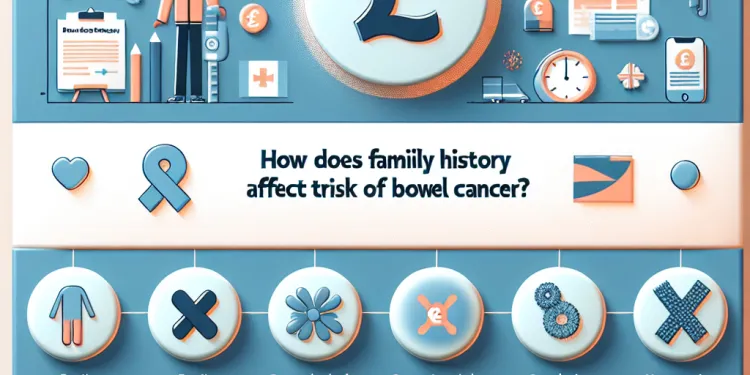
How does family history affect the risk of bowel cancer?
Relevance: 69%
-

Can bowel cancer be prevented?
Relevance: 67%
-

Taking a Genetic Family History - The Conversation (Bowel Cancer)
Relevance: 67%
-
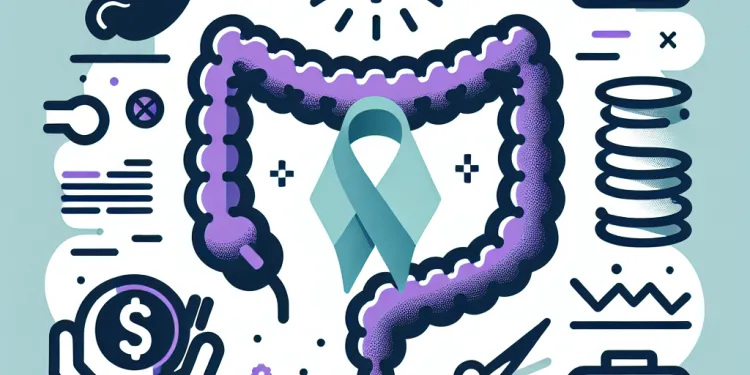
What is the survival rate for bowel cancer?
Relevance: 66%
-

How is the stage of bowel cancer determined?
Relevance: 65%
-

How common is bowel cancer?
Relevance: 59%
-

What support is available for individuals diagnosed with bowel cancer?
Relevance: 58%
-

What is Cancer?
Relevance: 57%
-

How is bowel cancer diagnosed?
Relevance: 57%
-

Ovarian Cancer
Relevance: 56%
-

Endometrial Cancer
Relevance: 55%
-

Treating prostate cancer
Relevance: 54%
-

Don't carry the worry of cancer with you | NHS
Relevance: 53%
-

Breast cancer: testing and treatment | NHS
Relevance: 52%
-

Worried about signs that could be cancer? Contact your GP practice | NHS
Relevance: 52%
-

Why do men get prostate cancer?
Relevance: 51%
-
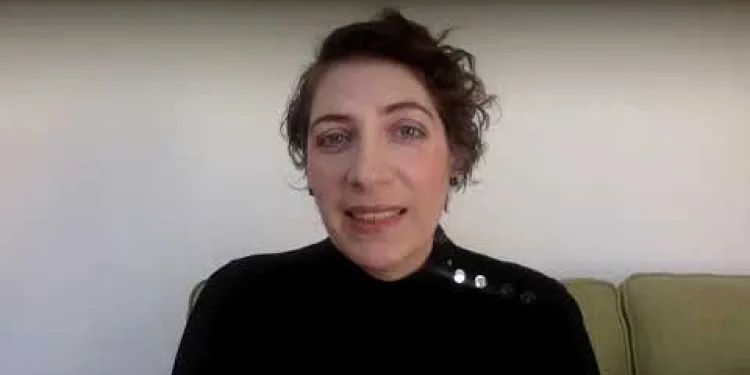
World Pancreatic Cancer Day - No Time to Wait
Relevance: 51%
-

Prostate cancer symptoms - detecting them early
Relevance: 50%
-
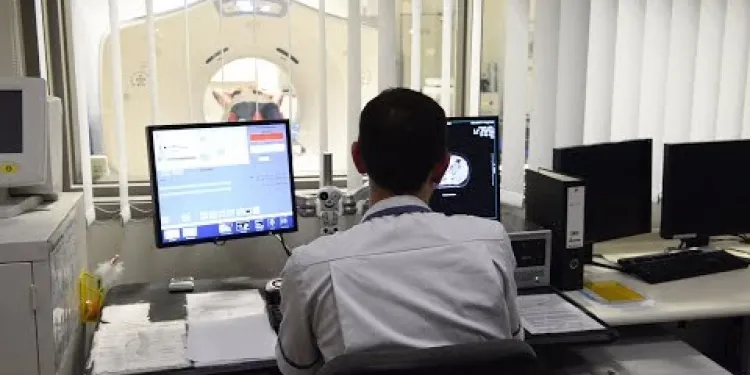
Having radiotherapy for breast cancer - 3 Videos
Relevance: 50%
-
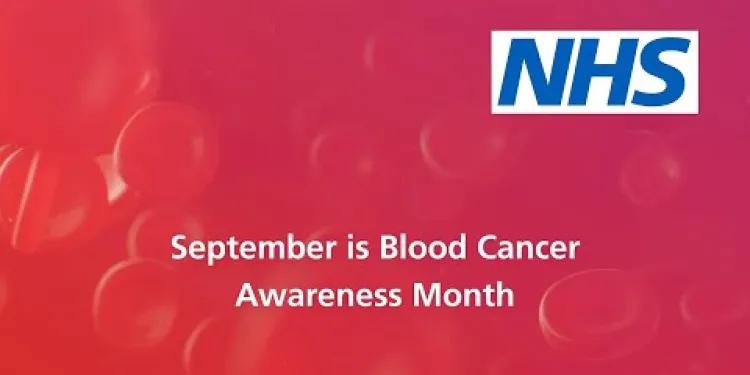
4 facts about blood cancer that you should know | NHS
Relevance: 48%
-

Skin cancer education
Relevance: 47%
-
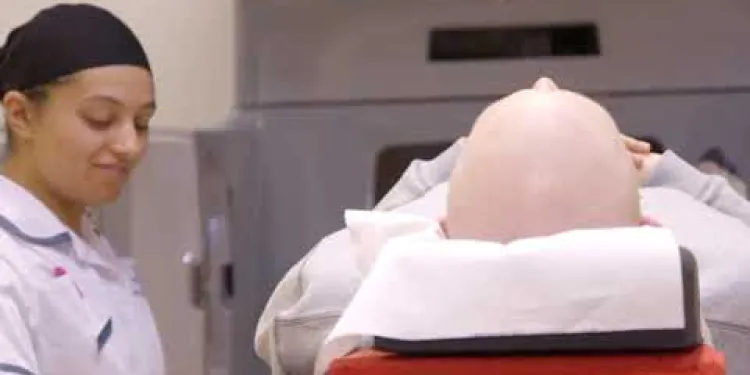
What is Radiotherapy, and its use in treatment for cancers?
Relevance: 46%
-

Prostate cancer diagnosis and tests
Relevance: 46%
-

Head and Neck Cancer Diagnosis
Relevance: 45%
-

What is Prostate Cancer?
Relevance: 45%
-

Genomics I: An overview of genomics in cancer care
Relevance: 44%
-

Vaginal Cancer
Relevance: 43%
-

Can HPV lead to cancer?
Relevance: 42%
-
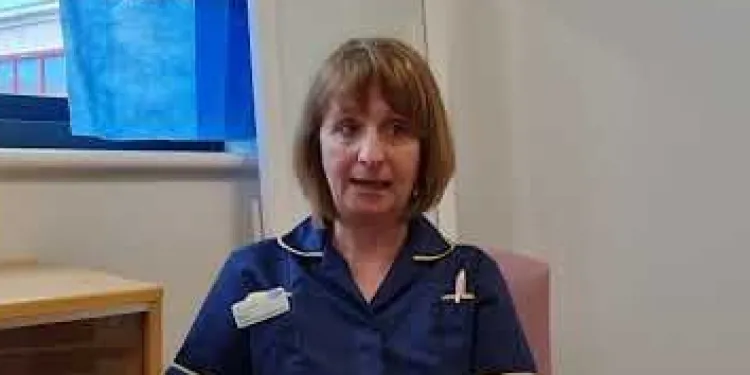
Ovarian cancer - signs and symptoms to look out for
Relevance: 41%
-
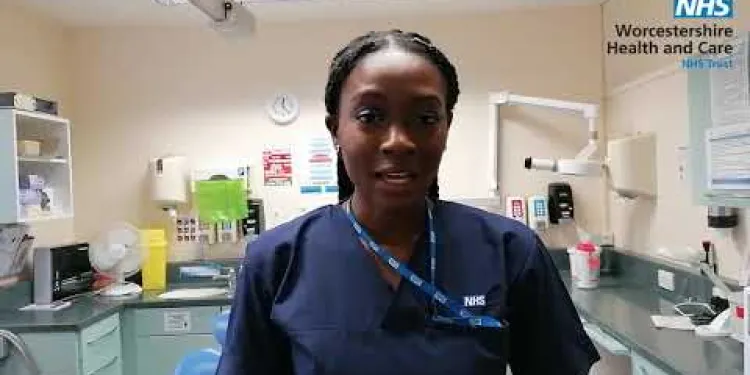
Mouth Cancer Awareness
Relevance: 41%
Understanding the Prevalence of Bowel Cancer in the UK
Bowel cancer, also known as colorectal cancer, is a significant health concern in the United Kingdom. It ranks as the fourth most common cancer in the country, following breast, lung, and prostate cancers. According to available statistics, approximately 42,000 people are diagnosed with bowel cancer each year in the UK, highlighting the importance of awareness and early detection.
Factors Influencing Bowel Cancer Rates
There are several factors that contribute to the high incidence of bowel cancer in the UK. Age is a significant risk factor, with a majority of cases diagnosed in individuals over the age of 50. Lifestyle factors such as diet, physical activity, and alcohol consumption also play crucial roles. Diets high in red and processed meats and low in fiber can increase the risk, alongside obesity and smoking. Family history and genetic predispositions also contribute to one's likelihood of developing the disease.
Gender and Regional Differences
Bowel cancer affects both men and women, but studies have shown that men are more likely to be diagnosed with the disease than women. This difference in prevalence between genders could be attributed to variations in lifestyle and genetic factors. Furthermore, there are regional disparities within the UK, with Scotland and Northern Ireland reporting higher rates compared to England and Wales. These variations may reflect differences in healthcare access, socioeconomic factors, and public health initiatives.
Screening and Early Detection
The UK has implemented effective screening programs aimed at detecting bowel cancer early. The NHS Bowel Cancer Screening Programme invites individuals aged 60 to 74 to participate in regular screening every two years. Early detection through screening can significantly improve treatment outcomes and survival rates. With increasing awareness and participation in screening, the number of individuals diagnosed at an early stage has been improving.
Improving Awareness and Reducing Risk
Public health campaigns and initiatives play a crucial role in improving awareness about bowel cancer and encouraging lifestyle changes to reduce risk. Emphasizing the importance of a healthy diet, regular physical activity, and moderating alcohol consumption are key components of these campaigns. Additionally, individuals are encouraged to be aware of any unusual symptoms, such as changes in bowel habits, unexplained weight loss, or persistent abdominal pain, and to seek medical advice promptly.
Conclusion
Bowel cancer remains a common and serious health issue in the UK, but efforts to increase awareness, improve early detection, and promote healthier lifestyles offer hope for reducing its prevalence and improving outcomes for those affected. The success of screening programs and continued focus on education are essential components in the ongoing fight against bowel cancer in the UK.
Understanding Bowel Cancer in the UK
Bowel cancer, also called colorectal cancer, is a big health problem in the UK. It is the fourth most common cancer in the country, after breast, lung, and prostate cancers. Around 42,000 people find out they have bowel cancer each year. This shows how important it is to know about it and find it early.
Why Some People Get Bowel Cancer
Many things can make bowel cancer more common in the UK. Getting older is a big reason, and most people who get it are over 50. How you live, like what you eat and if you exercise, also matters. Eating lots of red and processed meats and not enough fiber can raise the risk. Being overweight and smoking can also make bowel cancer more likely. If family members have had it, or if it runs in the family, you might be more at risk too.
Differences Between Men and Women and Where You Live
Bowel cancer can happen to both men and women, but men are more likely to get it. This might be because of different lifestyles or genetics. In some parts of the UK, like Scotland and Northern Ireland, more people get bowel cancer compared to England and Wales. This might be due to differences in healthcare, how much money people have, or health programs that are available.
Spotting Bowel Cancer Early
The UK has programs to find bowel cancer early. The NHS Bowel Cancer Screening Programme asks people aged 60 to 74 to do screenings every two years. Finding cancer early makes treatment work better. More people are getting diagnosed early because of these programs.
How to Stay Healthy and Lower Your Risk
Campaigns help people learn about bowel cancer and how to stay healthy. Eating well, exercising, and drinking less alcohol are important. If you notice changes in your poop, lose weight without trying, or have belly pain that won't go away, see a doctor quickly.
Conclusion
Bowel cancer is common in the UK, but knowing more about it, finding it early, and living healthier lives can help. Screening programs and education are important in fighting bowel cancer.
Frequently Asked Questions
What is bowel cancer?
Bowel cancer, also known as colorectal cancer, is a type of cancer that begins in the colon or rectum.
How common is bowel cancer worldwide?
Bowel cancer is the third most common cancer worldwide, with over 1.8 million new cases diagnosed in 2018.
How common is bowel cancer in the United States?
In the United States, bowel cancer is the third most commonly diagnosed cancer in both men and women.
What are the risk factors for developing bowel cancer?
Risk factors include age, family history, genetic conditions, diet, smoking, alcohol consumption, and certain medical conditions like inflammatory bowel disease.
At what age is bowel cancer most common?
Bowel cancer is most common in people over the age of 50, although it can occur at younger ages.
Are there any screening tests for bowel cancer?
Yes, screening methods include stool tests, colonoscopies, and sigmoidoscopies to detect early signs of bowel cancer.
How often should one get screened for bowel cancer?
Screening recommendations vary, but generally, it is advised to start at age 45-50 and continue at regular intervals.
What are the symptoms of bowel cancer?
Symptoms may include changes in bowel habits, blood in the stool, abdominal pain, fatigue, and unexplained weight loss.
Does having a family history of bowel cancer increase risk?
Yes, a family history of bowel cancer can increase an individual's risk due to genetic factors.
Can lifestyle changes reduce the risk of bowel cancer?
Adopting a healthy lifestyle, including a balanced diet, regular exercise, reducing alcohol consumption, and avoiding smoking, can help reduce the risk.
Is bowel cancer more common in men or women?
Bowel cancer risk is slightly higher in men than in women.
Can bowel cancer be inherited?
Certain genetic conditions that can be inherited, like Lynch syndrome and familial adenomatous polyposis, increase the risk of bowel cancer.
What are the survival rates for bowel cancer?
Survival rates vary by stage at diagnosis, but early detection generally leads to better outcomes.
Is bowel cancer more common in some ethnic groups?
Yes, incidence rates can vary by ethnicity due to genetic, environmental, and lifestyle factors.
Can bowel cancer spread to other parts of the body?
Yes, if not detected early, bowel cancer can metastasize to other organs such as the liver and lungs.
Are there preventive measures for bowel cancer?
Preventive measures include regular screenings, lifestyle modifications, and genetic counseling if there's a family history.
What treatments are available for bowel cancer?
Treatment options include surgery, chemotherapy, radiation therapy, and targeted therapies, depending on the stage and location.
How is bowel cancer diagnosed?
Diagnosis is typically made through a combination of medical history, physical examination, endoscopic procedures, imaging tests, and biopsies.
Can bowel cancer recur after treatment?
Yes, there is a possibility of recurrence, which is why follow-up care and monitoring are important post-treatment.
What advancements have been made in bowel cancer research?
Advancements include better screening methods, new treatments like immunotherapy, and improved genetic understanding of the disease.
What is bowel cancer?
Bowel cancer is a type of cancer that happens in the bowel. The bowel is a long tube inside your body that helps to digest food. Cancer is a sickness that happens when bad cells grow in the body. When these bad cells grow in the bowel, it is called bowel cancer.
If you want more help, you can ask someone to explain it to you. You can also use tools like audio books or videos to learn more. These can make it easier to understand.
Bowel cancer is a kind of cancer. It starts in the colon or rectum. Some people also call it colorectal cancer.
How often do people get bowel cancer around the world?
Bowel cancer is a type of cancer that affects your tummy. It is quite common.
Here’s some more information to help understand it:
- Bowel cancer happens to people all over the world.
- It is one of the most common cancers.
You can use tools that make reading easier. Try listening to books or using apps that read texts aloud.
Bowel cancer is a disease that many people get. It is the third most common cancer in the world. In 2018, more than 1.8 million people found out they had it.
How often do people in the United States get bowel cancer?
In the United States, bowel cancer is the third most common cancer found in men and women.
What can make you more likely to get bowel cancer?
Things that can make you more likely to get sick include:
- How old you are
- If people in your family have been sick with the same thing
- If your body has special conditions from when you were born
- What you eat
- If you smoke
- If you drink alcohol
- If you have certain illnesses like a sore belly that doesn't go away
To help understand better, you can use tools like picture cards to show these risks or ask someone to explain in a simple way. Remember, it's okay to ask questions to make things clearer!
When do people usually get bowel cancer?
Bowel cancer usually happens in people over 50 years old, but younger people can get it too.
Can doctors check for bowel cancer?
Yes, there are ways to check for bowel cancer. You can have stool tests, colonoscopies, or sigmoidoscopies to find it early.
How often should you check for bowel cancer?
You should check for bowel cancer every few years. This helps doctors find any problems early. A doctor can tell you when to do these checks. They might give you a test kit to use at home.
If you have questions, you can ask a doctor or nurse for help. You can also ask a family member or friend to help you understand.
Doctors say people should start health checks when they are 45 to 50 years old. Keep doing these checks every so often.
What are the signs of bowel cancer?
Bowel cancer means the cancer is in the large intestine. Here are some things to look out for:
- Have you noticed any blood in your poo?
- Is your poo looser than usual?
- Do you go to the toilet more often than normal?
- Do you have a tummy ache that won't go away?
- Do you feel very tired all the time?
- Have you lost weight without trying?
If you notice these signs, talk to a doctor. They can help check if you are okay. Using pictures or charts can also help you understand these signs better.
Signs you might see are:
- Going to the toilet in a different way than usual.
- Blood in your poo.
- Belly pain.
- Feeling very tired.
- Losing weight without trying.
If you find it hard to understand, you can:
- Ask someone to read it to you.
- Use pictures to explain the signs.
- Watch videos about the signs online.
Does having family members with bowel cancer mean you could get it too?
If your family has people who had bowel cancer, you might have a greater chance of getting it. But it doesn’t mean you will for sure.
It’s good to talk to your doctor. They can help and give advice.
Here are some things that can help:
- Visit your doctor for check-ups.
- Eat healthy foods like fruits and vegetables.
- Stay active and exercise.
Yes, having family members with bowel cancer can make your risk higher because of genes passed down in the family.
Can changing how we live help prevent bowel cancer?
Living healthy can help you stay well. Eat good foods, move your body with exercise, drink less alcohol, and do not smoke. These things can help keep you safe and strong.
Who gets bowel cancer more often, men or women?
Men have a small chance of getting bowel cancer more than women.
Can you get bowel cancer from your family?
Yes, some people can get bowel cancer from their family. This means it can be passed down from parents to children.
If you have family members with bowel cancer, it is good to talk to a doctor. They can help and give advice.
Some people find it helpful to use pictures or diagrams to understand better. You can also ask someone you trust to explain things.
Some health problems in your genes, like Lynch syndrome and familial adenomatous polyposis, can raise the chances of getting bowel cancer.
How many people live after getting bowel cancer?
How well someone does depends on when the problem is found, but finding it early usually helps people get better.
Do some groups of people get bowel cancer more often?
Bowel cancer means there is a problem in your tummy. Some groups of people might get it more than others.
It is a good idea to talk to a doctor if you are worried.
Here are some things you can do to help:
- Read with a friend or family member.
- Use pictures to help you understand.
- Ask your doctor to explain things to you.
Yes, how often something happens can be different for people from different backgrounds. This can be because of genes, where they live, and how they live their lives.
Can bowel cancer move to other parts of the body?
Bowel cancer is a sickness in your tummy. It can sometimes move to other parts of your body, like the liver or lungs.
If you are worried, it is good to talk to a doctor. They can help you understand more.
Supportive help:
- Ask someone to read with you.
- Draw pictures to help you understand.
- Use an app to read the text out loud.
Yes, if bowel cancer is not found early, it can spread to other parts of the body like the liver and lungs.
Can you stop bowel cancer from happening?
To stay healthy, you can do these things:
- Go to the doctor for check-ups often.
- Eat healthy food and exercise.
- Talk to a doctor if anyone in your family has had certain illnesses.
What can help if you have bowel cancer?
If you have bowel cancer, doctors can do different things to help you get better. Here are some common treatments:
- Surgery: Doctors might do an operation to take out the part of the bowel with cancer.
- Chemotherapy: This is special medicine that helps to kill cancer cells.
- Radiation therapy: This uses special rays to destroy cancer cells.
It's important to talk to your doctor to find the best treatment for you.
There are different ways to help people get better. These include:
- Operations to take out bad parts
- Strong medicine to fight bad cells (called chemotherapy)
- Strong rays to kill bad cells (called radiation)
- Special medicine that only goes after bad cells (called targeted therapies)
Doctors choose what is best depending on how big the problem is and where it is in the body.
How do doctors find out if someone has bowel cancer?
Doctors use tests to check for bowel cancer. These tests help them see inside the body.
Here are some ways they do it:
- Stool Test: This test checks your poo for blood. Blood in poo can be a sign of bowel cancer.
- Colonoscopy: A doctor uses a special camera to look inside your bowel.
- CT Scan: This is a special picture of the inside of your body. It helps doctors see if there are any lumps or changes in the bowel.
If you feel worried about any tests, talk to someone you trust or ask your doctor to explain it in a simple way.
You can also use tools like video explanations or picture books to help you understand better.
Doctors find out what's wrong by doing a few different things. They ask about your health in the past, check your body, use special tools to look inside, take pictures, and take a small sample to look at it closely.
If you need help understanding, you can ask someone you trust or use tools that read out loud or give more explanations.
Can bowel cancer come back after treatment?
Yes, the problem might come back. This is why it is important to see the doctor for check-ups after treatment.
What new things have we learned about bowel cancer?
Scientists are studying and finding new ways to understand and treat bowel cancer. Here are some of the things they are doing:
- Finding better medicines to help people with bowel cancer.
- Creating new tests to find bowel cancer early.
- Learning more about why people get bowel cancer.
If you want help to understand, you can:
- Ask someone to explain it to you.
- Look at pictures or videos about bowel cancer.
- Use simple reading apps to help you.
Doctors are getting better at finding cancer early. There are new ways to treat cancer, like using the body's own defenses. We also know more about how our genes affect cancer.
Useful Links
- Ergsy carfully checks the information in the videos we provide here.
- Videos shown by Youtube after a video has completed, have NOT been reviewed by ERGSY.
- To view, click the arrow in centre of video.
- Most of the videos you find here will have subtitles and/or closed captions available.
- You may need to turn these on, and choose your preferred language.
- Go to the video you'd like to watch.
- If closed captions (CC) are available, settings will be visible on the bottom right of the video player.
- To turn on Captions, click settings .
- To turn off Captions, click settings again.
More Items From Ergsy search
-

Bowel cancer - Symptoms and signs to look out for
Relevance: 100%
-

Learn about bowel cancer (British Sign Language version)
Relevance: 79%
-

What are the risk factors for bowel cancer?
Relevance: 78%
-

What role does diet play in the risk of developing bowel cancer?
Relevance: 75%
-

What lifestyle changes can help lower the risk of bowel cancer?
Relevance: 75%
-

What is the difference between colon cancer and rectal cancer?
Relevance: 73%
-

Can bowel cancer spread to other parts of the body?
Relevance: 72%
-

What treatment options are available for bowel cancer?
Relevance: 72%
-

Bowel cancer screening: Alan Titchmarsh and Tommy Walsh | NHS
Relevance: 71%
-

What is Bowel Cancer?
Relevance: 70%
-

How does family history affect the risk of bowel cancer?
Relevance: 69%
-

Can bowel cancer be prevented?
Relevance: 67%
-

Taking a Genetic Family History - The Conversation (Bowel Cancer)
Relevance: 67%
-

What is the survival rate for bowel cancer?
Relevance: 66%
-

How is the stage of bowel cancer determined?
Relevance: 65%
-

How common is bowel cancer?
Relevance: 59%
-

What support is available for individuals diagnosed with bowel cancer?
Relevance: 58%
-

What is Cancer?
Relevance: 57%
-

How is bowel cancer diagnosed?
Relevance: 57%
-

Ovarian Cancer
Relevance: 56%
-

Endometrial Cancer
Relevance: 55%
-

Treating prostate cancer
Relevance: 54%
-

Don't carry the worry of cancer with you | NHS
Relevance: 53%
-

Breast cancer: testing and treatment | NHS
Relevance: 52%
-

Worried about signs that could be cancer? Contact your GP practice | NHS
Relevance: 52%
-

Why do men get prostate cancer?
Relevance: 51%
-

World Pancreatic Cancer Day - No Time to Wait
Relevance: 51%
-

Prostate cancer symptoms - detecting them early
Relevance: 50%
-

Having radiotherapy for breast cancer - 3 Videos
Relevance: 50%
-

4 facts about blood cancer that you should know | NHS
Relevance: 48%
-

Skin cancer education
Relevance: 47%
-

What is Radiotherapy, and its use in treatment for cancers?
Relevance: 46%
-

Prostate cancer diagnosis and tests
Relevance: 46%
-

Head and Neck Cancer Diagnosis
Relevance: 45%
-

What is Prostate Cancer?
Relevance: 45%
-

Genomics I: An overview of genomics in cancer care
Relevance: 44%
-

Vaginal Cancer
Relevance: 43%
-

Can HPV lead to cancer?
Relevance: 42%
-

Ovarian cancer - signs and symptoms to look out for
Relevance: 41%
-

Mouth Cancer Awareness
Relevance: 41%